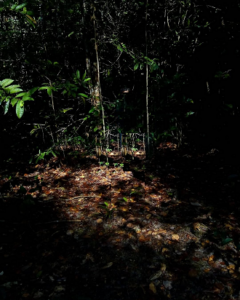
Arquivo para June 8th, 2022
Being, clearing and unveiling
 Every material, human and substantial question developed in the Enlightenment humanism provoked a veiling of Being, in which the external questions are more important and thought out than the interior ones, even though from Kant to Hegel the question of the spirit has been dealt with, it has always resulted in a dualism between active life (exterior) and contemplative life (interior), the latter translated as subjectivity (which belongs to the subject) and the former as objectivity.
Every material, human and substantial question developed in the Enlightenment humanism provoked a veiling of Being, in which the external questions are more important and thought out than the interior ones, even though from Kant to Hegel the question of the spirit has been dealt with, it has always resulted in a dualism between active life (exterior) and contemplative life (interior), the latter translated as subjectivity (which belongs to the subject) and the former as objectivity.
For Heidegger it goes further, because it touches on the deep question of truth, it is in it that Western metaphysical thought was decided and developed, for this the thinker took up the question that the Greeks called “aletheia”, commonly translated simply as truth, but the suffix a-léthea, indicates negation, thus unveiled or as Heidegger preferred to translate it: unveiled.
The veiling is linked to the “presence” [on], which is the presence and the light, synthesized in the question that drives Plato’s thought in the myth of the cave, coming to light, coming out of the cave, in times of darkness, it means finding the clearing and unveiling it.
The presence of light, summarized in the question of Eidos, which was translated in the West by the word idea, cannot forget that for the Greeks the big question is to remain in the light, or to get out of the objective/subjective dualism that is to have the light of Being, not only inwardly, but in outward acts.
When questioning the end of philosophy as a task of thought, the act of questioning while thinking becomes pure interpretation of “data”, it is no longer a question of “[on” (presence) but what is present only as a thing, which for Heidegger from phenomenology is an adjective of “light”, while thinking is an “open free”, which has nothing in common, not even from the point of view of language, he wrote in this question: “of course, in the sense of open free , has “nothing” in common, neither from a linguistic point of view, nor in terms of the thing that is expressed with the adjective “luminous”, which means clear” (HEIDEGGER, 1979, p. 79).
It’s not about abolishing tradition, it played a role in history, but unveiling it, bringing it to light.
It is, therefore, about free thinking about the world, in permanent exercise of the world view.
Heidegger, Martin. (1979) “O fim da filosofia e a tarefa do pensamento” (The End of Philosophy and the Task of Thought”. In: Os pensadores. Brazil, São Paulo: Abril Cultural, pp. 79.

